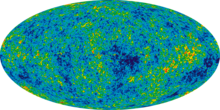Current scientific theories that include infinity have amazing predictive power.
Which means nothing in terms of ontology. Newtonian gravity has amazing predictive power but it turns out to be incorrect at high velocities and for large masses.
All scientific theories are approximations. If you don't understand that you don't understand the first thing about science.
Are you making the claim that current scientific theories are the absolute and final truth, and will never be refined or extended or modified in any way? I hope you're not saying that but if you are, admit it now.
The only alternative theory we could have to explain this would be for us ordinary folks to believe scientists are the magical fairies.
Newton famously understood that natural science is DESCRIPTIVE and not EXPLANATORY. Do you understand this point? Science builds mathematical models that match known observations to some satisfying number of decimal places. We do not know anything about ultimate causes. Ultimate causes are metaphysics and not physics.
Still, it's true there's no absolute criterion.
Oh. Ok. You do understand this point. So why are you typing in arguments in support of a thesis you already know is wrong? And aiming them at me?
It all comes down to what you believe,
Oh. So there is no objective reality. It's only about what I believe. I believe in magical fairies and someone else believes in modern physics. What of it? All points of view are equally valid. "It all comes down to what you believe."
Don't you see that you keep contradicting yourself? If it's "all in the mind" and "it all comes down to what you believe" then you aren't in much of a position to be defending the thesis of objective science dispassionately studying an external reality.
precisely because, as I said, we don't know.
Well then what is your point and why are you aiming it at me?
Yet, there are clearly different kinds of beliefs and we can make the distinction for example between theories that are not falsifiable and those that are.
Uh-oh you're about to fall into a trap of your own making.
Science is, fairies are not.
Really? Multiverse theory is falsifiable? True pointlike particles are falsifiable? Tell me about this. Make sure to supply peer-reviewed references. This is going to be interesting.
You see you just wrecked your own thesis. Much of modern physics is not falsifiable. This is a serious problem that a lot of people are noticing. "Landscape" theories are not falsifiable.
So, you can choose to believe in things like fairies but it's your choice and nothing anybody could stop you from.
Well, objective evidence to contrary would convince me. But nobody has provided any objective evidence for the multiverse and for actual physical infinities.
Infinities are not like fairies.
Having studied a bit of infinitary set theory, infinities are very much like fairies. They're imaginary things that we make up stories about and then reason logically from the stories.
Please understand once and for all that infinity exists in mathematics by ARBITRARY FIAT.
https://en.wikipedia.org/wiki/Axiom_of_infinity
I'm not sure how we go about falsifying infinities
Turns out you can. The negation of the axiom of infinity is consistent with the other axioms of set theory. When you negate the axiom of infinity you get Peano arithmetic. There's 1, and there's 2, and there's 3, ... but there is not a completed set containing all of them. You can do math in this system just fine, a lot of number theory still works.
Physics, not so much. But this is just the same problem we've already noted. Abstract crazy math is often useful to physicists even though it's not "true" in any meaningful sense. Wigner again.
but the tricky point here is that if infinities don't exist they are falsifiable
Nobody has ever provided evidence for the existence of physical infinities. If anyone ever did they'd get the Nobel prize immediately. I really hope you understand this. There is no evidence for physical infinities. All we have is the fact that mathematical infinities, which are highly abstract and which only exist by arbitrary fiat, turn out to be useful. Wigner again.
and if they exist they are not. So, as long as we don't falsify them, we can only remain uncertain.
Isn't the burden of proof on those who claim something exists that there's no evidence for? There's no evidence for physical infinities.
I have to say I have no idea what you're talking about or why you aimed this post at me. You're not arguing with anything I've said or anything I believe.
QuarkHead dropped in to mention that the Hilbert space formulation of QM uses infinities. I pointed out why this is a mathematical idealization and not to be taken as having ontological value.
QuarkHead has not seen fit to come back and explain himself or reply to my points. I'm disappointed in that, I wish I knew why he posted as he did and whether I've addressed his point or missed it.


